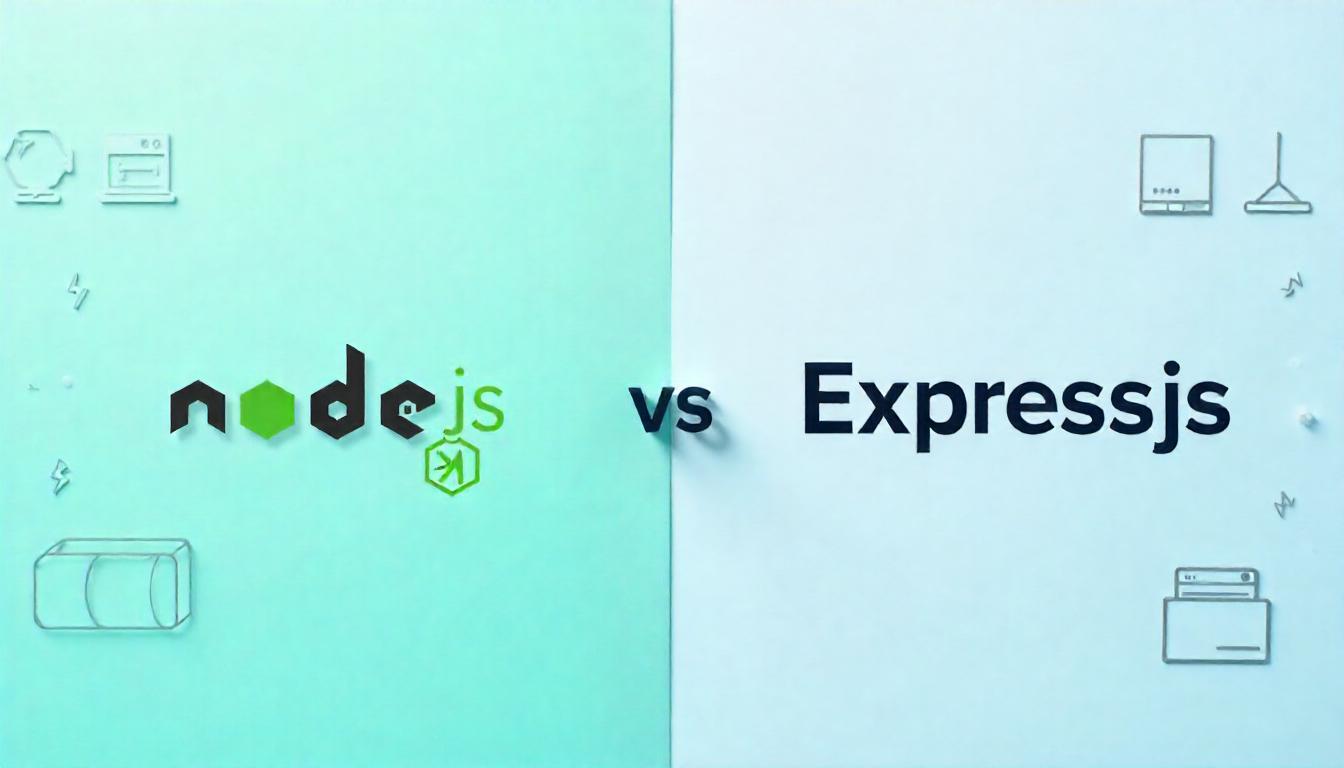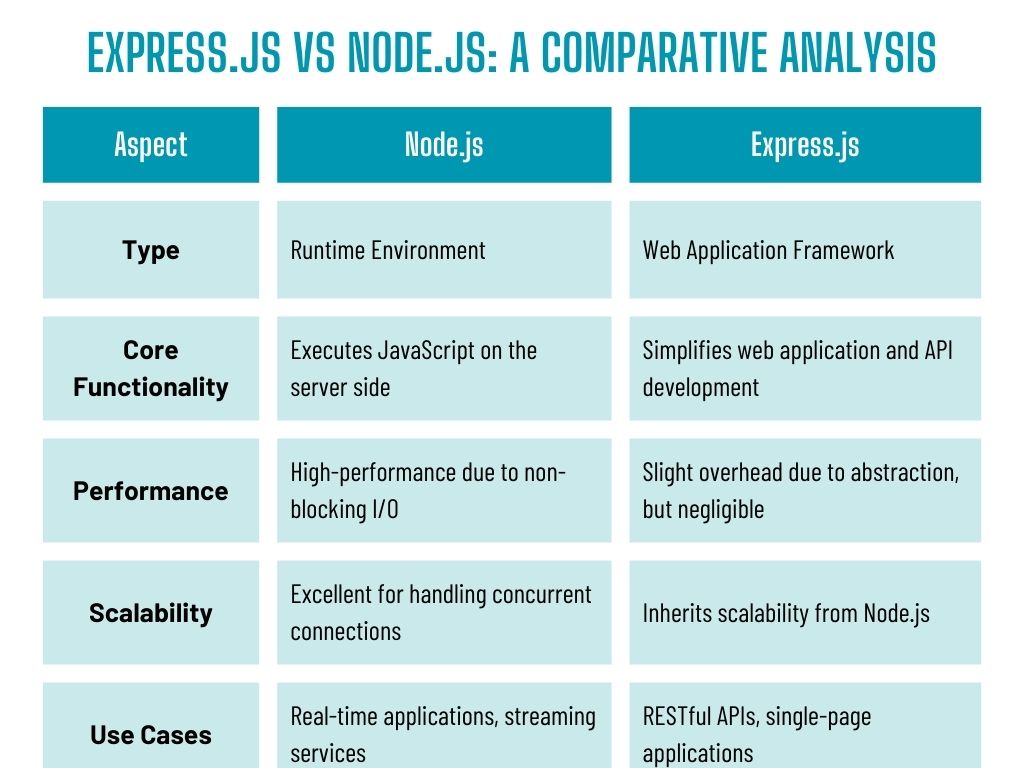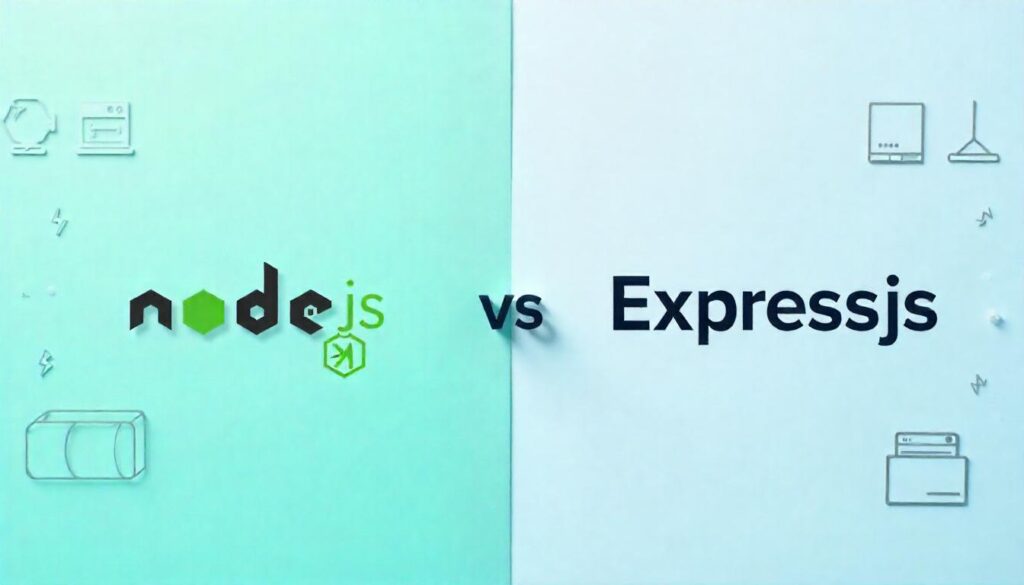
In the ever-evolving landscape of web development, selecting the appropriate backend technology is crucial for building efficient and scalable applications. Two prominent tools in this domain are Node.js and Express.js. While they are often used together, understanding their individual roles and differences is essential for making informed development choices.
Understanding Node.js
Node.js is a runtime environment that allows developers to execute JavaScript code on the server side. Built on Chrome’s V8 JavaScript engine, Node.js is known for its non-blocking, event-driven architecture, which makes it ideal for building scalable network applications.
Key Features of Node.js
- Asynchronous and Event-Driven: Node.js uses non-blocking I/O operations, enabling it to handle multiple requests simultaneously.
- Single-Threaded Model: Manages numerous concurrent connections efficiently.
- Rich Ecosystem: Access to thousands of libraries through NPM.
- Cross-Platform Compatibility: Supports all major operating systems.
Stat Tip: As of 2025, over 43% of developers globally use Node.js in their tech stack, making it one of the top backend technologies (Stack Overflow Survey 2024).
Exploring Express.js
Express.js is a minimalistic and flexible web application framework built on top of Node.js. It simplifies backend development by providing structure and a powerful set of tools for routing, middleware, and template integration.
Key Features of Express.js
- Simplified Routing: Define clean and intuitive routes.
- Middleware Support: Execute custom functions between request and response cycles.
- Template Engine Integration: Supports Pug, EJS, Handlebars, and more.
- Rapid Development: Allows developers to build prototypes and MVPs quickly.
Stat Tip: According to GitHub’s Octoverse 2024, Express.js is the most starred Node.js framework, with over 62K stars and 15K forks.
Express.js vs Node.js: A Comparative Analysis
While Express.js and Node.js are frequently used together, their roles differ fundamentally. Here’s a side-by-side comparison to clarify their distinction:

Stat Tip: According to BuiltWith trends, more than 90% of Express.js apps are deployed on a Node.js runtime, reinforcing their complementary nature.
When to Use Node.js
Node.js is best suited for high-concurrency applications that require real-time data exchange or intensive server operations. It’s a go-to tool for building scalable and high-speed applications with efficient memory usage.
Common Use Cases:
- Real-Time Chat Apps
- Live Collaboration Tools (e.g., Google Docs-like platforms)
- Streaming Services
- IoT Applications
Stat Tip: Netflix reduced their startup time by over 70% after migrating to Node.js, improving customer experience globally.
When to Use Express.js
Express.js is ideal for projects where structured routing and rapid development are key. Its straightforward syntax and flexibility make it a favorite among developers building APIs or simple web servers.
Common Use Cases:
- RESTful API Servers
- CRUD Applications
- Admin Dashboards
- Lightweight Web Apps
Stat Tip: Over 25 million websites currently use Express.js for backend operations (W3Techs 2024).
Real-World Applications
Here’s how major companies are leveraging these technologies:
- Node.js:
- Netflix: Backend for fast global video streaming
- LinkedIn: Mobile app backend
- Uber: Real-time matching system
- Express.js:
- IBM Cloud Functions: REST APIs with Express
- MySpace & Accenture: Lightweight internal APIs and dashboards
Stat Tip: Express.js is used in over 78% of all Node.js-based projects according to the Node.js Foundation 2024 Developer Report.
Final Thoughts
Choosing between Node.js and Express.js isn’t about selecting one over the other — it’s about understanding their strengths and using them in harmony. Node.js provides the runtime power and scalability needed for complex operations, while Express.js offers structure, ease, and rapid development for web applications.
By knowing the difference between Node.js and Express.js, developers can better architect backend systems based on real project needs.
Pro Tip: Start with Node.js to understand backend fundamentals, and then integrate Express.js for faster development and cleaner codebases.
Check out our new blog on : Top 5 Frontend Frameworks You Should Learn in 2025
Contact us to know our services


